 Published in 2020 by Cavendish Square Publishing, LLC 243 5th Avenue, Suite 136, New York, NY 10016 Copyright 2020 by Cavendish Square Publishing, LLC First Edition No part of this publication may be reproduced, stored in a retrieval system, or transmitted in any form or by any meanselectronic, mechanical, photocopying, recording, or otherwisewithout the prior permission of the copyright owner. Request for permission should be addressed to Permissions, Cavendish Square Publishing, 243 5th Avenue, Suite 136, New York, NY 10016. Tel (877) 980-4450; fax (877) 980-4454. Website: cavendishsq.com This publication represents the opinions and views of the author based on his or her personal experience, knowledge, and research. The information in this book serves as a general guide only. The author and publisher have used their best efforts in preparing this book and disclaim liability rising directly or indirectly from the use and application of this book.
Published in 2020 by Cavendish Square Publishing, LLC 243 5th Avenue, Suite 136, New York, NY 10016 Copyright 2020 by Cavendish Square Publishing, LLC First Edition No part of this publication may be reproduced, stored in a retrieval system, or transmitted in any form or by any meanselectronic, mechanical, photocopying, recording, or otherwisewithout the prior permission of the copyright owner. Request for permission should be addressed to Permissions, Cavendish Square Publishing, 243 5th Avenue, Suite 136, New York, NY 10016. Tel (877) 980-4450; fax (877) 980-4454. Website: cavendishsq.com This publication represents the opinions and views of the author based on his or her personal experience, knowledge, and research. The information in this book serves as a general guide only. The author and publisher have used their best efforts in preparing this book and disclaim liability rising directly or indirectly from the use and application of this book.
All websites were available and accurate when this book was sent to press. Library of Congress Cataloging-in-Publication Data Names: Reed, Jennifer, 1967- author. Title: Yankee Doodle / Jennifer Reed. Description: New York, NY: Cavendish Square Publishing, 2020. | Series: Americas songs | Audience: Grades 2-5 | Includes bibliographical references and index. Identifiers: LCCN 2019000918 (print) | LCCN 2019001081 (ebook) | ISBN 9781502648808 (ebook) | ISBN 9781502648792 (library bound) | ISBN 9781502648778 (pbk.) | ISBN 9781502648785 (6 pack) Subjects: LCSH: Yankee Doodle (Song)--Juvenile literature.
Classification: LCC ML3561.Y2 (ebook) | LCC ML3561.Y2 R43 2020 (print) | DDC 782.42/15990973--dc23 LC record available at https://lccn.loc.gov/2019000918 Editorial Director: David McNamara Editor: Kristen Susienka Copy Editor: Nathan Heidelberger Associate Art Director: Alan Sliwinski Designer: Joe Parenteau Production Coordinator: Karol Szymczuk Photo Research: J8 Media The photographs in this book are used by permission and through the courtesy of: Cover Everett Historical/ . Printed in the United States of America CONTENTS Sheet Music
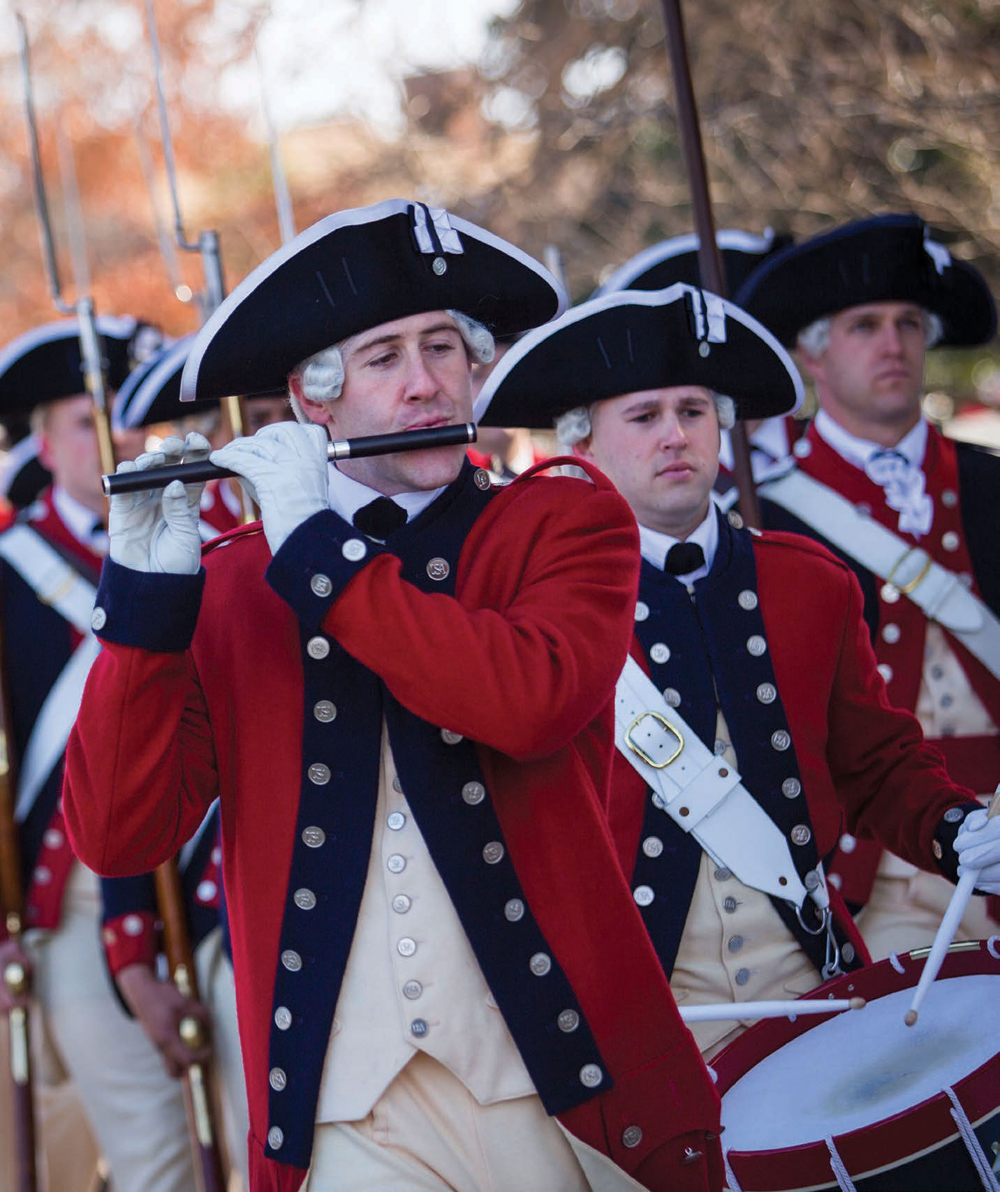
The Old Guard Fife and Drum Corps plays patriotic tunes during a Presidents Day celebration at Mount Vernon in 2014. CHAPTER 1 A Silly Song T he United States has many songs about it and the people living in it. Some of these songs talk about how beautiful the United States is. Other songs talk about silly things in America. Some silly songs are important to Americans today.
One example is Yankee Doodle. It started as a song making fun of Americans. Today, it is a song. Yankee Doodle 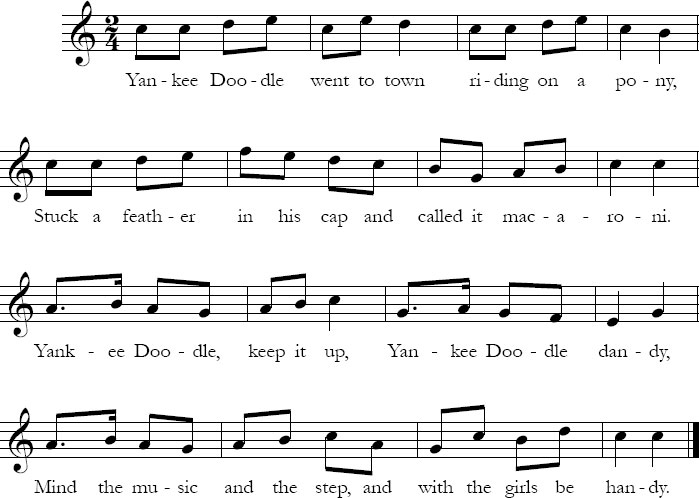 Making It Their Own Yankee Doodle was a popular British song in the late 1700s. Its was played at dances during this time. Words for the song were written in the mid-1700s.
Making It Their Own Yankee Doodle was a popular British song in the late 1700s. Its was played at dances during this time. Words for the song were written in the mid-1700s.
No one knows who wrote the original words. The song had different versions. The most well-known version was not a very nice song. It made fun of Americans. That is because America and Britain were at war. The war was the American Revolution.
It happened from 1775 to 1783. The British called Americans yankees. A doodle was a silly person. A yankee doodle was a silly American.  Fact The word doodle comes from the German word dudel.
Fact The word doodle comes from the German word dudel.  During the war, Americans started to sing the song at battles.
During the war, Americans started to sing the song at battles.  During the war, Americans started to sing the song at battles.
During the war, Americans started to sing the song at battles.
They liked to make fun of themselves. The songs happy melody made Americans feel good. Soon, the song united the American soldiers. It helped them win Americas freedom from Britain. 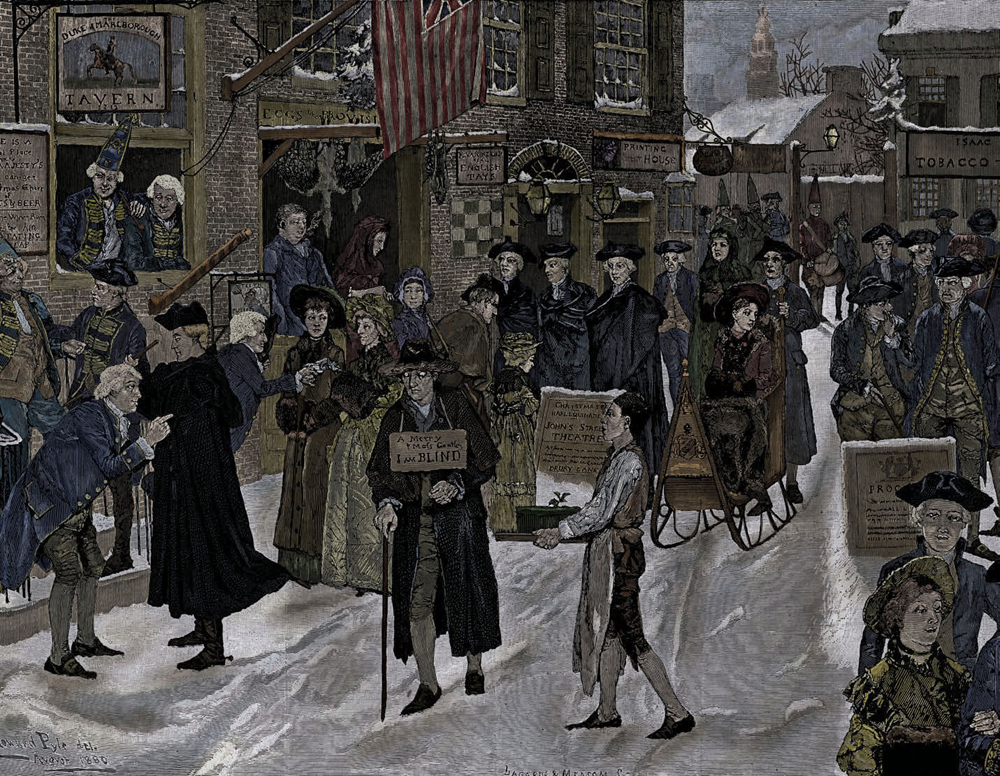 This image shows American colonists on the streets of New York City on Christmas Day in the 1700s. Singing It Today Today, the song is a silly song for kids to sing.
This image shows American colonists on the streets of New York City on Christmas Day in the 1700s. Singing It Today Today, the song is a silly song for kids to sing.
People also sing it or hear it played at celebrations and parades. The Fourth of July is a good time to hear the song. It is a song that Americans can enjoy whenever they hear it.  Fact England was the worlds most powerful country during the American Revolution. It ruled countries on almost every continent.
Fact England was the worlds most powerful country during the American Revolution. It ruled countries on almost every continent.  What Does It Mean? Originally, British soldiers sang Yankee Doodle.
What Does It Mean? Originally, British soldiers sang Yankee Doodle.
It poked fun at the Americans they were fighting. Its meaning has changed now. However, the songs is still silly. The words in the song lots of people know today talk about a man riding on a pony and trying to become someone he isnt. Many words in the song had different meanings in the eighteenth century than they have today. If you understand the old-fashioned words, you can understand the song better.
Words to Know dandy A person who thinks he looks good in the way he dresses. doodle A fool. handy Within easy reach to help. macaroni A fashionable person. Yankee A negative word the British used to call American colonists. 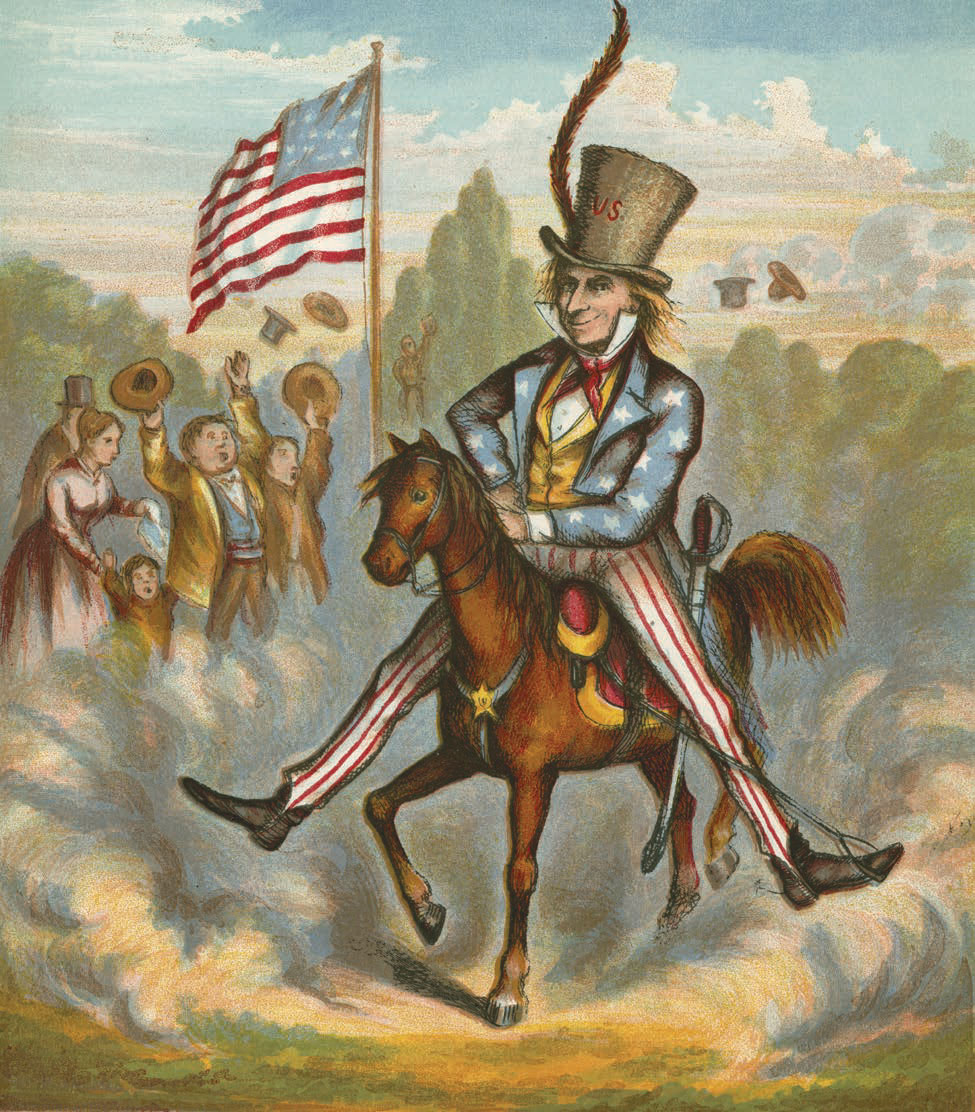 This illustration shows silly Yankee Doodle riding his horse and wearing a feather in his hat.
This illustration shows silly Yankee Doodle riding his horse and wearing a feather in his hat.
People cheer him in the background. 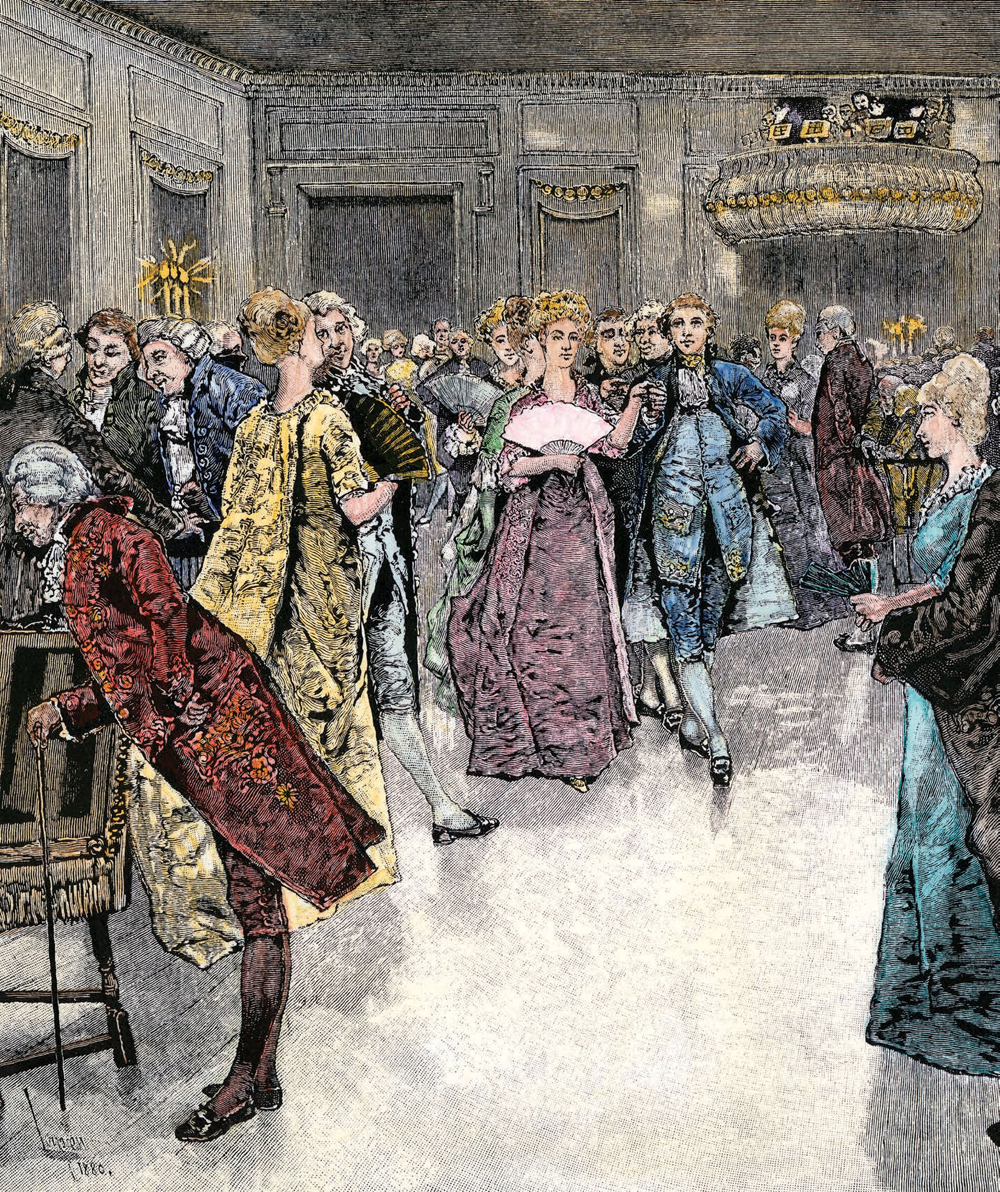 Here, American colonists mind their step, or dance, in the early 1700s.
Here, American colonists mind their step, or dance, in the early 1700s.
CHAPTER 2 Yankee Doodle, Keep It Up! I n the 1700s, America was ruled by England. People who lived in America during that time were called colonists. America was a colony. A colony is a country that belongs to another country.
The melody of Yankee Doodle was first heard in the 1700s. People liked the melody. They began to play it at dances. People invented steps to the dance. That might be one reason why the song talks about minding the step, or remembering the dance moves. A Doctor and a Songwriter From 1754 to 1763, the British and French fought a war in North America.
It was called the French and Indian War. It was during this war that the first words were put to Yankee Doodle. The man who wrote these words is thought to be Dr. Richard Shuckburgh. He was a doctor in the British army.  Fact In 1775, the United States was producing much of the worlds iron.
Fact In 1775, the United States was producing much of the worlds iron.  The war ended in 1763.
The war ended in 1763.  The war ended in 1763.
The war ended in 1763.
Soon after, American colonists began to be upset by British laws. They wanted to become their own country. New battles started in 1775. The American Revolution began. In 1776, American colonists signed the Declaration of Independence. This document said that America was its own country.
The war got worse after people signed the declaration. The war lasted until 1783. 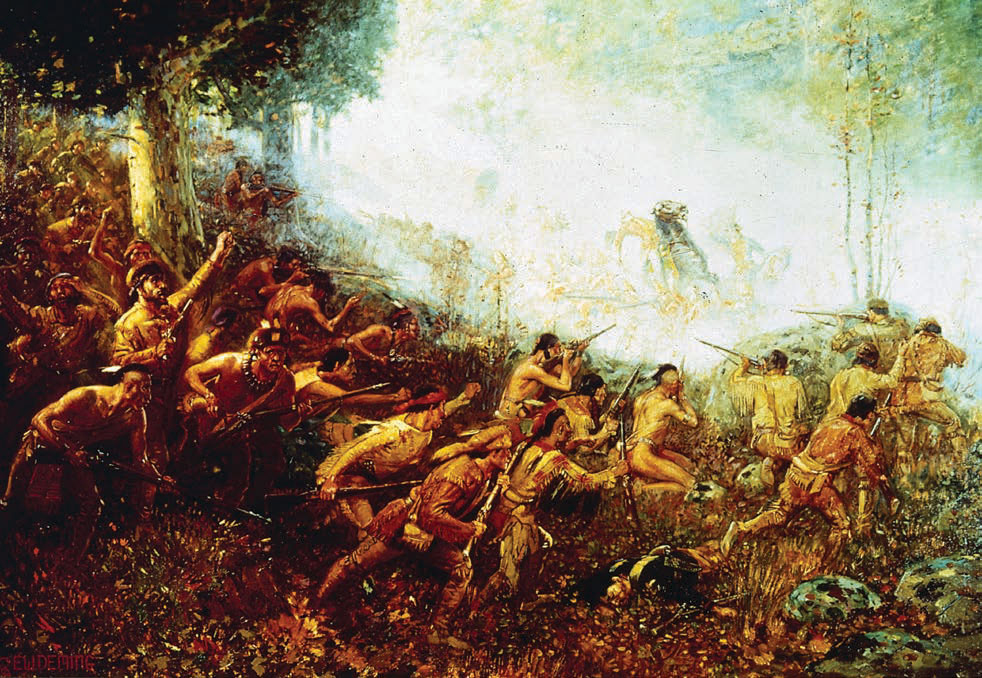
Next page
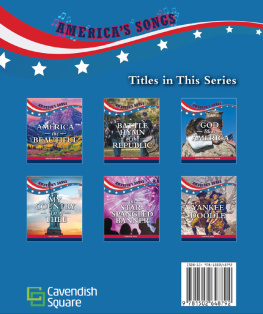


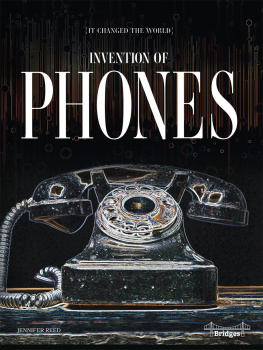








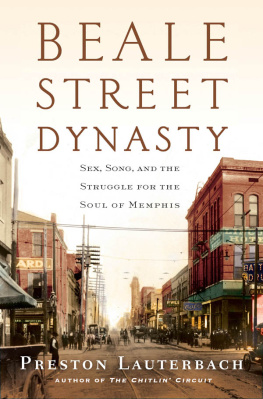
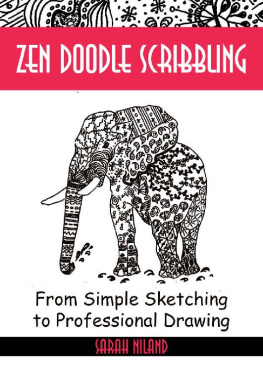


 Published in 2020 by Cavendish Square Publishing, LLC 243 5th Avenue, Suite 136, New York, NY 10016 Copyright 2020 by Cavendish Square Publishing, LLC First Edition No part of this publication may be reproduced, stored in a retrieval system, or transmitted in any form or by any meanselectronic, mechanical, photocopying, recording, or otherwisewithout the prior permission of the copyright owner. Request for permission should be addressed to Permissions, Cavendish Square Publishing, 243 5th Avenue, Suite 136, New York, NY 10016. Tel (877) 980-4450; fax (877) 980-4454. Website: cavendishsq.com This publication represents the opinions and views of the author based on his or her personal experience, knowledge, and research. The information in this book serves as a general guide only. The author and publisher have used their best efforts in preparing this book and disclaim liability rising directly or indirectly from the use and application of this book.
Published in 2020 by Cavendish Square Publishing, LLC 243 5th Avenue, Suite 136, New York, NY 10016 Copyright 2020 by Cavendish Square Publishing, LLC First Edition No part of this publication may be reproduced, stored in a retrieval system, or transmitted in any form or by any meanselectronic, mechanical, photocopying, recording, or otherwisewithout the prior permission of the copyright owner. Request for permission should be addressed to Permissions, Cavendish Square Publishing, 243 5th Avenue, Suite 136, New York, NY 10016. Tel (877) 980-4450; fax (877) 980-4454. Website: cavendishsq.com This publication represents the opinions and views of the author based on his or her personal experience, knowledge, and research. The information in this book serves as a general guide only. The author and publisher have used their best efforts in preparing this book and disclaim liability rising directly or indirectly from the use and application of this book. The Old Guard Fife and Drum Corps plays patriotic tunes during a Presidents Day celebration at Mount Vernon in 2014. CHAPTER 1 A Silly Song T he United States has many songs about it and the people living in it. Some of these songs talk about how beautiful the United States is. Other songs talk about silly things in America. Some silly songs are important to Americans today.
The Old Guard Fife and Drum Corps plays patriotic tunes during a Presidents Day celebration at Mount Vernon in 2014. CHAPTER 1 A Silly Song T he United States has many songs about it and the people living in it. Some of these songs talk about how beautiful the United States is. Other songs talk about silly things in America. Some silly songs are important to Americans today.  Making It Their Own Yankee Doodle was a popular British song in the late 1700s. Its was played at dances during this time. Words for the song were written in the mid-1700s.
Making It Their Own Yankee Doodle was a popular British song in the late 1700s. Its was played at dances during this time. Words for the song were written in the mid-1700s. Fact The word doodle comes from the German word dudel.
Fact The word doodle comes from the German word dudel.  This image shows American colonists on the streets of New York City on Christmas Day in the 1700s. Singing It Today Today, the song is a silly song for kids to sing.
This image shows American colonists on the streets of New York City on Christmas Day in the 1700s. Singing It Today Today, the song is a silly song for kids to sing. This illustration shows silly Yankee Doodle riding his horse and wearing a feather in his hat.
This illustration shows silly Yankee Doodle riding his horse and wearing a feather in his hat. Here, American colonists mind their step, or dance, in the early 1700s.
Here, American colonists mind their step, or dance, in the early 1700s.